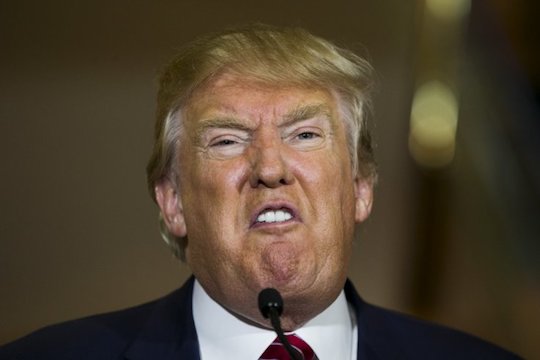Donald Trump won the presidential election. It was a landslide; it was tremendous, one of the biggest votes in history. He won by every metric imaginable, except the total number of people who voted for him. In that minor regard, the popular vote, Hillary won. It doesn’t matter. She’s not going to be president, and Donald Trump is. Yet winning the electoral college when fewer Americans vote for you seems kind of like winning on a technicality. It’s like Hillary ran faster, but Trump ran the inside of the track. This issue nags at him, as evidenced by this morning’s tweet:
I would have done even better in the election, if that is possible, if the winner was based on popular vote – but would campaign differently
— Donald J. Trump (@realDonaldTrump) December 21, 2016
The message here is clear: Trump couldn’t have done better in this election, really, but he would have won the popular vote if that mattered—which it doesn’t. So the popular vote doesn’t reflect his competence, and if it did he would have done differently. Case closed? Close reading after the jump.
Here the president-elect bites repeatedly at a chunk of cake while trying to have it, too. He wants to say he would have won the popular vote if he had tried, but he doesn’t want to acknowledge that the popular vote matters at all. It kind of does. Would that it mattered more, this year—or in 2000, when the first presidential election of my adult life gave us the worst president in American history.1 But even though it has no practical consequences, losing the popular vote gives Trump an aura of illegitimacy. If nothing else, it argues against his sales pitch that he is good at everything.
So Trump must fight a lot of ideas here, some of which he introduces himself. To counter the notion that the popular vote is important, he goes to a typical Trumpian conceit: if things were different, he would have won more. To those who say the president should be selected by popular vote, he says that if that were the case, he would have done even better!
The problem with this argument is that it admits his victory in the real world was less than total. Trump realizes this flaw and hedges against it with the subordinate clause “if that is possible.” Here his insistence on writing in vernacular English comes around to bite him. The subjunctive “if that were possible” would be grammatically correct, and it would more firmly establish that we’re talking about a hypothetical. “If that is possible” implies Trump just doesn’t know. He probably means it the first way, but that’s a prep school/Ivy League education for you.
If it were possible for Trump to do any better, he would have, in the scenario where the winner was based on the popular vote. But it’s a bad comparison anyway, because he would have campaigned differently under those circumstances. This is the central message of Trump’s tweet: that arguments about the popular vote are invalid, because their premise is a counterfactual. Lots of things would have been different in that scenario, including his strategy.
So it doesn’t matter that Hillary won the popular vote, because if it did, he would have campaigned differently. The problem with this tweet is twofold. First, it piles up enough qualifications and subclauses to suggest that Trump is trying to dispel an idea from his own head. When he says he couldn’t have done better, but he would have won the popular vote if it were important, which it isn’t, he makes us think losing the popular vote matters to him. This suspicion is confirmed by the other fold in the problem: the election was six weeks ago, and he’s still litigating it on Twitter.
If Trump felt so secure in his victory, he might use his morning Twitter time to talk about plans for his administration or some business he wanted to destroy. Instead, he’s definitively answering questions no one asked. This tweet reveals a man fighting a narrative—one that keeps spreading not just in the media, but in his own head. All this popular vote stuff is such bullshit that he can’t stop thinking about it. He starts a sentence to address it and immediately tells himself not to even worry—“if that is possible”—before returning to the troublesome idea again. He would have campaigned differently, if that were possible. He would forget all about it. He would.




